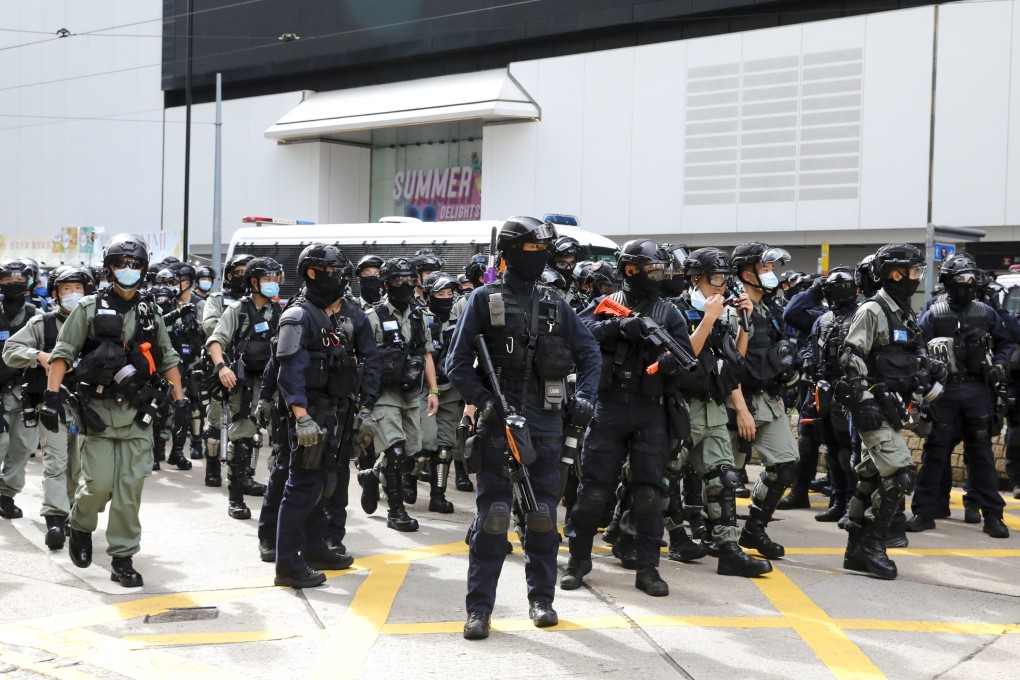Hong Kong third wave: the focus on protests shows flawed government priorities
- Failure to address preserving people’s health and livelihoods reveals how blinkered national leaders have become
- Unlike someone protesting for rights, someone with Covid-19 symptoms who goes on as if there is nothing wrong is harming public health

Huge police resources are being pumped into the latter. Groups of officers are posted to strategic spots to swoop in and arrest, the order obviously being to silence a right that is legally protected.
The law, introduced on July 1, ultimately perceives national security as being about protecting the government in power. Politics is at its heart, the crimes outlined being about secession, subversion, terrorist activities and collusion with outsiders.
There is no mention of the need to protect the health and livelihoods of the citizens of the nation, which surely outweighs preserving the longevity of those holding high office. Unveiled in the midst of the worst pandemic the world has experienced in more than a century, the failure to address so important a matter in the hastily drafted legislation reveals how blinkered the national leadership has become.

02:52
Officials tightens restrictions again as Hong Kong reports record-high Covid-19 cases
